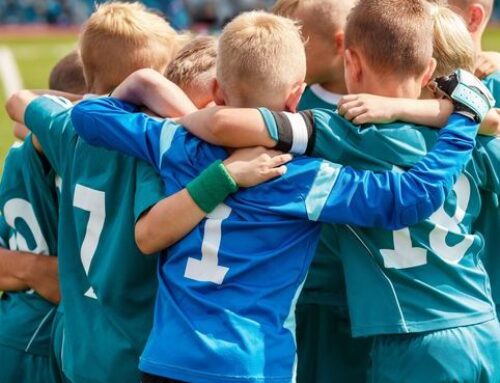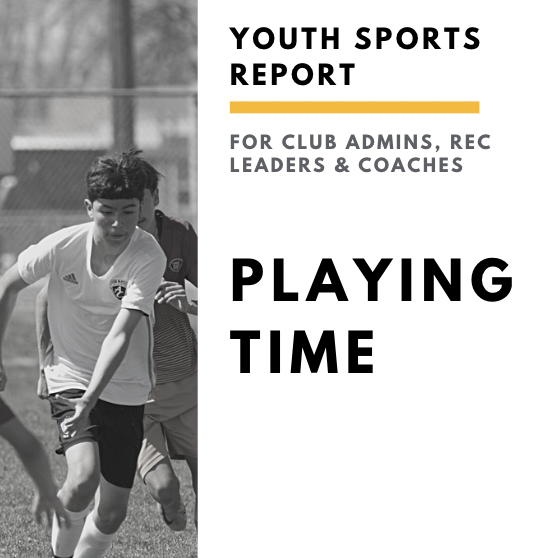Get our exclusive report. Download the iSport360 Club Switching Report Here – For Club Admins, Rec Leaders and Coaches.
The Mental Health Side of College Sports
For many young kids, becoming a Division I athlete is the ultimate dream; endless cool gear, fancy photoshoots, big stadiums, fans, and of course, the opportunity to play the sport you love at the highest amateur level. iSport360 even pokes fun at how parents act on the sidelines. It is all in good fun. Growing up, watching these players on television created a romanticized image of what it looks like to “make it.” But there is another side, the mental health side of college sports.
These young student-athletes, only 18-22 years old become role models for an entire generation of young athletes on what it means to be successful, talented and hard working. For a long time, this “perfect” idea of what it encompassed to be a Division I athlete was simple: be mentally tough, make sacrifices other kids your age never had to, and maintain a top-notch work ethic. I know all this because I was a Division I athlete and I too, thought about all of these things. While they hold some truth, they unfortunately are not the whole picture.
There are indeed incredible benefits to being an athlete at a Division I college. Some include potentially receiving a free and elite education, being part of a team that becomes like family, and being afforded opportunities that no other student experiences. On the other hand, there is an ugly side to this path that has been silenced for decades. As a result, I set out to investigate and find the answer to how college sports and college athletes prioritize, and also devalue, one’s well being.
My Mental Health Stigma With College Sports
From personal experience I know that the stigma around mental health, and the stereotype that athletes have to always be mentally tough, means that going to a therapist can be perceived within the athletic world as a sign of weakness. As a result, this is important research to do because before college, when athletes are most impressionable, they work extremely hard to reach this incredibly high level of play because they believe it will be fun, rewarding, and the greatest honor to play the sport they love, for four years at the highest amateur level. Instead, when I came in as a first-year student for example, I was hit with the harsh reality that this logic can be no further from the truth. I realized I was trapped in this culture of monotonous repetition; often feeling like a hamster running a thousand miles a minute going nowhere.
Navigating Mental Health Well Being of College Sports
One of the greatest challenges I faced was navigating my mental well-being during collegiate sports. Athletes are constantly told to put their well-being aside for the sake of the team, to push outside of themselves for their teammates. And if one is to express concern or show signs of “not being able to handle it” they are deemed not mentally tough enough to play at this level, causing more harmful consequences. We have to ensure that student-athletes are understood and protected for their own health.
If coaches, administrators, athletic trainers, etc. do not understand what goes inside student-athletes minds, then how could they know they are doing right by them? Are banners, trophies and championships worth more than the mental health and well-being of young athletes? Does having a roster full of depressed and anxious young adults take a back seat to having a winning record? It is no secret that winning does not come free; but what is the cost we are willing to make young athletes pay?
Top 10 Mental Health Takeaways for Colleges
When my research was all said and done, I compiled the main takeaways into a list for coaches, athletic departments, mental health advocates, counselors, etc. so they can get an understanding of what is missing from the voices of athletes themselves. Here are my top 10:
1. Eliminate the Structural Strain
Athletes feel they have a foot in two different worlds and are strained to figure out a way to be successful in both.
2. Equal Space for Mental Health
Every athlete and every team should be given equal opportunity to take up space in the athletic department. Money, scholarship availability, and outcomes should not decide who gets resources to tend to their well-being.
3. Ask Athletes about their Mental Health
Involve their voices and listen. This will also help to build trusting and meaningful relationships.
4. Conversations
Get rid of check the box education; begin to have real and honest conversations about well-being. Mental health and wellness education and awareness should not be a “get it over with” task.
5. Redefine Mental Toughness
Create a supportive atmosphere where mental strength is being able to talk about what you’re struggling with.
6. Reduce Stigma around the Counseling Center
Offer counselors to only student-athletes so they feel more comfortable seeking help.
7. Pre-Screen Athletes for Mental Health Before Play
Instill this best practice suggested by the NCAA as a policy. This will not only let the institution know what to look for but will also help the student-athlete navigate their own well-being.
8. Incorporate Student-Athlete Alumni More
Ask the people who have gone through it and see what attributes are missing and are necessary to fill.
9. Shift from Outcome-Centered to Athlete-Centered
Move away from the hegemonic masculine sports culture and winning approach and towards a wellness focused institution. Show the athletes their worth is not based on performance.
10. More than an Athlete
Knowing and caring for the whole human being; not just the athlete.
This research truly examined what the social cost of an outcome-centered approach, versus athlete-centered approach, was to our young athletes. While my research points to athletes doing self-care and team care ethics, it shows that this really is not enough when there are larger structural and societal issues at play. I am hopeful that with further awareness of this issue, more athletes will become change agents to their own well-being. As administrators, coaches, parents, and players, let’s all work together on improving the often, overlooked mental aspect of our young athletes!
With love,
#22 Abby Schubiger
Abby Schubiger is a former Division I basketball player at Colgate University.
Learn more or request a demo of our youth sports software that is helping teams improve communication, organization and player development.
December 20, 2020





